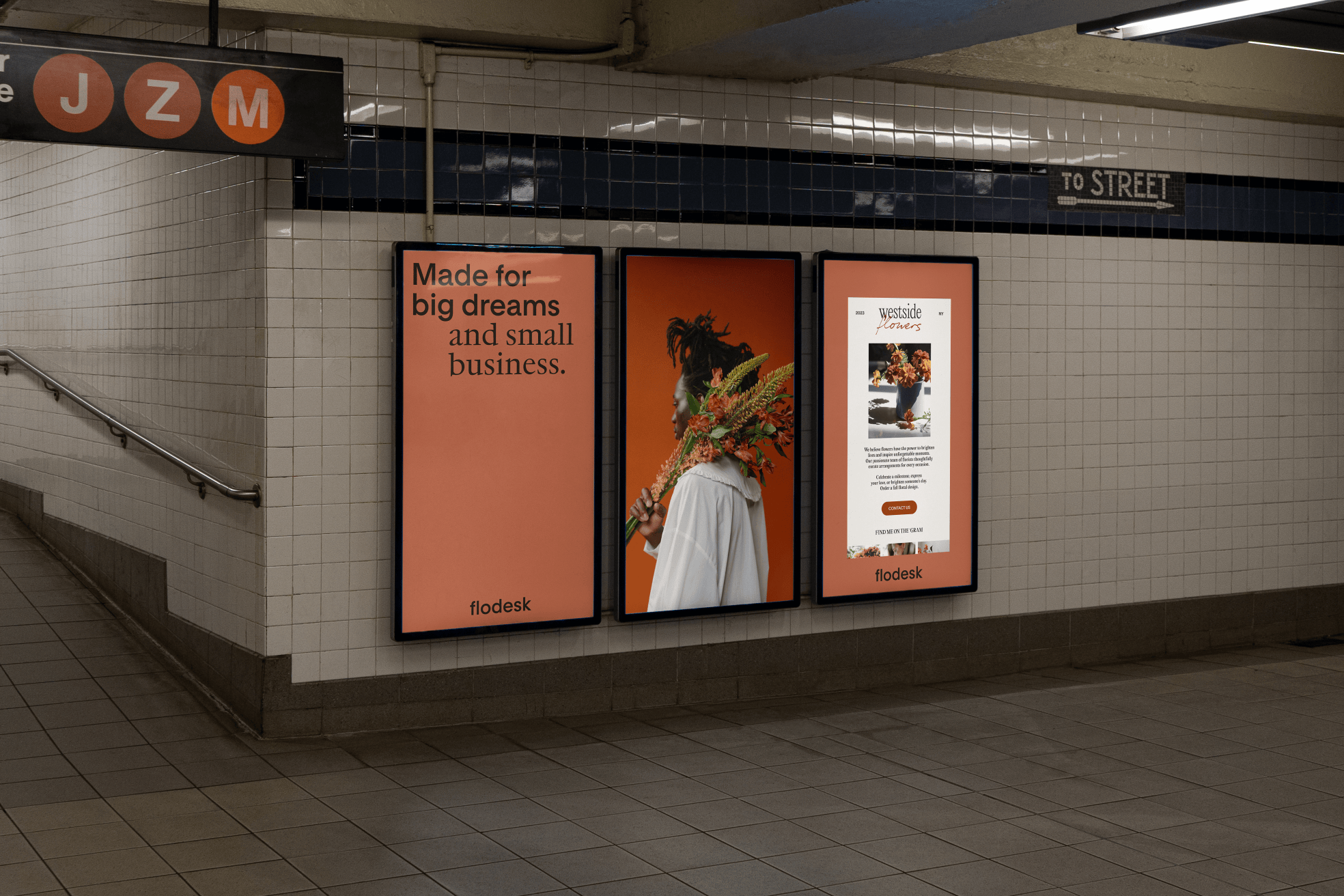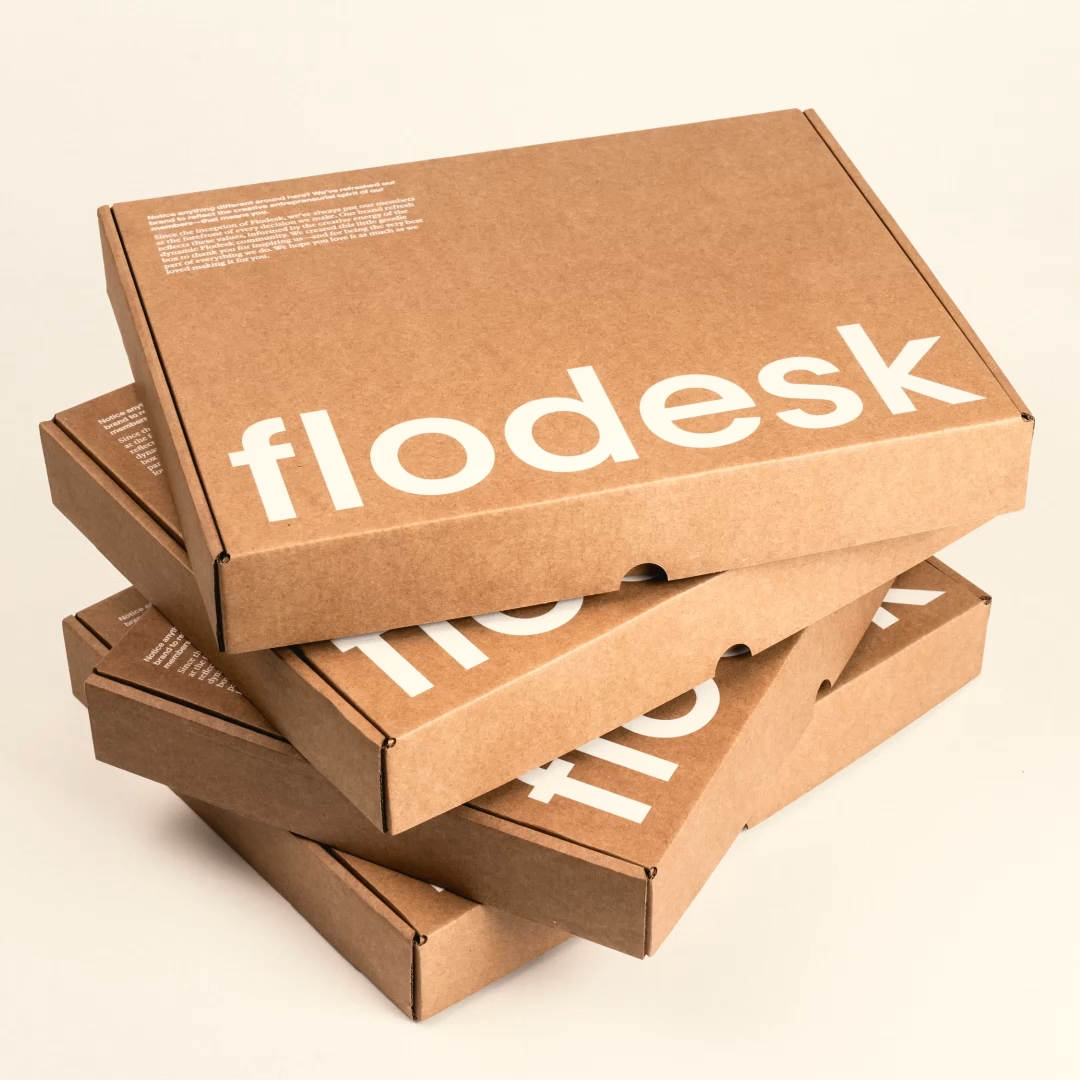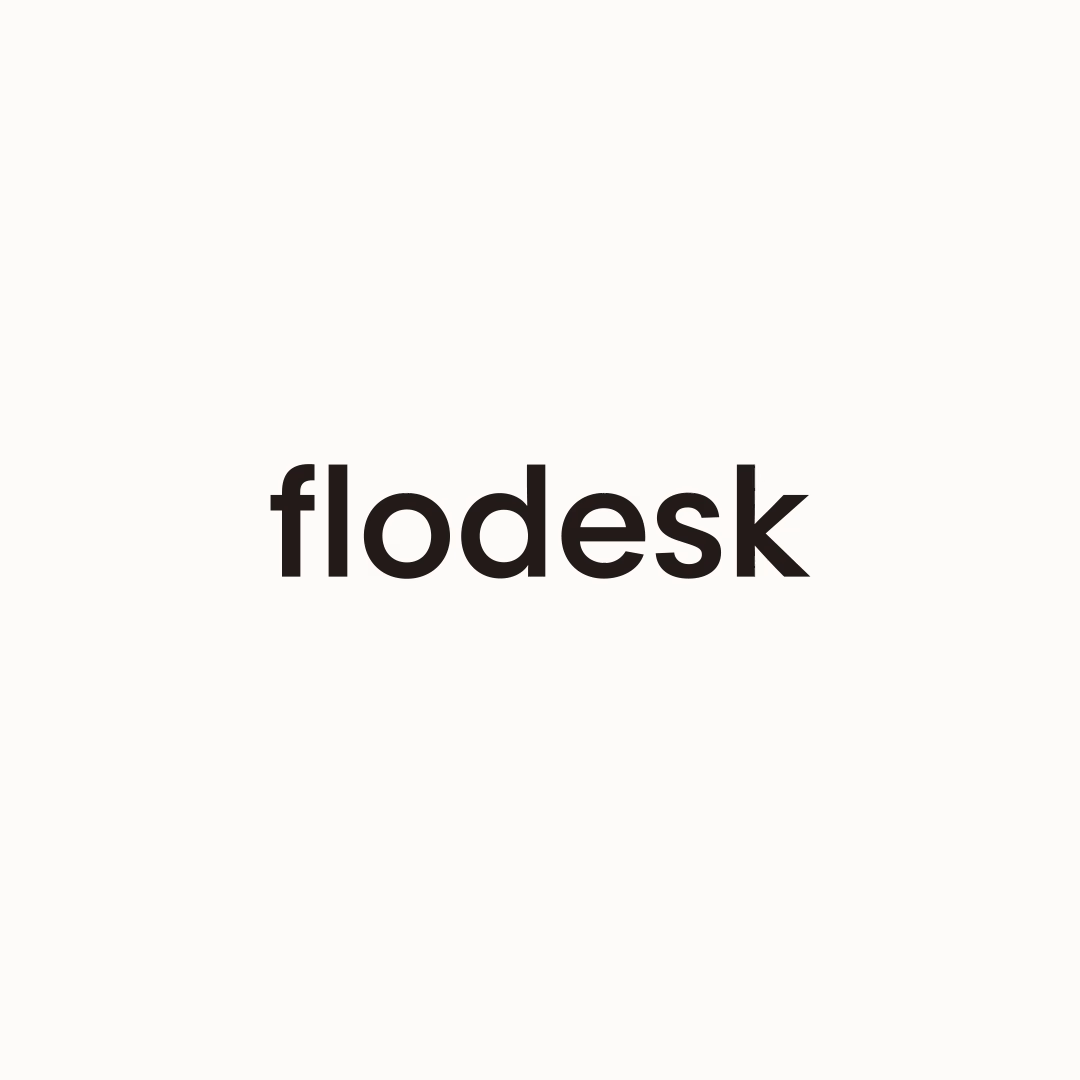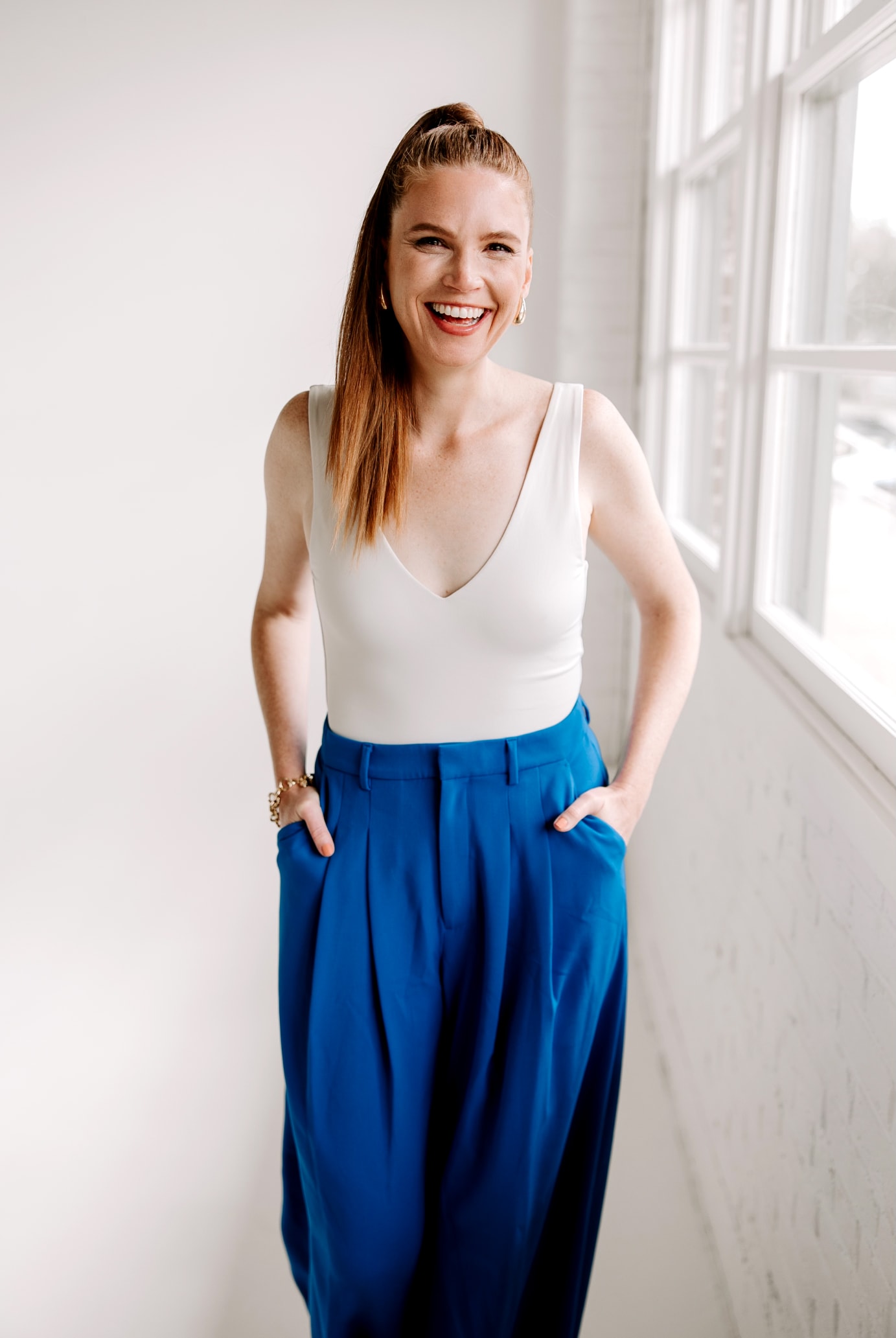Company Values
A collection of principles and convictions that guide Flodesk.
Company Values
A collection of principles and convictions that guide Flodesk.
Flodesk • values
01
Good Design
This is at the center of all we do—from product to systems, processes and new initiatives. We are intentional in the way we create.
Flodesk • values
02
Trust
We are transparent, build authentic relationships, and hold ourselves accountable to those who depend on us to run their businesses.
Flodesk • values
03
Empower
We give people the tools, support, and autonomy they need. Everyone is encouraged to use their voice to make an impact.
Flodesk • values
04
Invest in People
We make decisions based on the long term wellbeing of people in our ecosystem. When they succeed, we succeed.
Flodesk • values
05
Adapt
We embrace that change is the only constant. We seek to remain curious, open, and flexible, and to evolve with the world.
Showcase
Browse a diverse collection of our designs and references to see what keeps us inspired.































Meet The Team
Dive into the inner workings of our Flodersk Design Team and what drives us.







Why did you join Flodesk?
 CG
CGI see a lot of tech companies claim to be design-focused, when they truly are not. I liked Flodesk's vision and the brand. The fact that it's a small company means I can have a big impact.
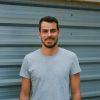 YM
YMThe appeal was going back to a smaller company that was in its initial phase, still growing. The design team is small, and knowing that I would be able to have a bigger impact, being one of the first product designers, was very appealing.
 DJ
DJIt was an opportunity to be closer to the front lines and work alongside a high-performing team where I can make a real impact. In some of my previous roles, I often encountered rigid structures and processes that slowed down progress, led to feature creep, and made teams lose focus on the strategy. At Flodesk, it seemed I’d be able to have more impact in that sense, while working towards a coherent vision.
Additionally, I was incredibly excited to join this company because everyone seemed super high-performing and smart. Flodesk has an incredible talent density, and I'm always amazed by the sublime work the team is doing here.



What are the challenges of operating in a small team?
 CG
CGWorking in a small team can be challenging, as things tend to move quickly. It's crucial to be mindful of your workload and priorities. While the work is often dynamic and engaging, finding time to explore or conduct deep research can be tricky. The key is finding the right balance between getting things done and making space for growth and innovation.
 DJ
DJWhile having many processes can slow teams down, having too few guidelines can also be challenging, as it might make it harder to collaborate and to navigate work for new joiners, and even for existing team members. When I joined Flodesk we had minimal guidelines, which in some ways was challenging. However, it was also an opportunity to contribute to developing those guidelines. Now, we're in a much better position (and double in size!). The key to me is to strike a balance between providing clarity and allowing for flexibility.
 CG
CGIt’s also a good thing because we have to communicate with our coworkers asynchronously, which gives us a lot of time for focused work. As creatives, having meetings all day and maybe just two hours of work can be extremely tiring. Here, we have this complexity with time zones, but these make us think async, which gives us a lot of time to focus. I believe this type of setup is ideal for designers. The focus on deep, uninterrupted work is precisely what we thrive on.
What is the team most excited about?
 CG
CGSomething big that we launched was our new brand. It was exciting not only because we were shaping a better brand, but also because we were working on a visual system. I feel now it's clear that we also have these systems that allow us to publish and produce faster. With this idea of having systems instead of one-offs, we are now trying to translate this into the templates that we offer in our product.
What was it like creating the design system and setting the direction?
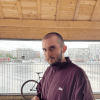 HA
HAThere was something that the engineers previously put together, but it was not a system that was built with the design and code in mind. So the system that I'm building is not built in Figma, it's built in the code. That's the main characteristic of the system. It's not something that is drawn in Figma and then somebody has to build it. It's written directly into the code. And because of that, it's almost like the pieces of the system are the actual product. You don't have to plan it and then build it, you just build it.



 YM
YMI think it's the first time that I'm working in a company where we have someone very focused on the design system, and someone who is not focused on the design system in Figma. It's been amazing how we've been focusing on making the components work well, and how someone owns this part in the sense that if something needs to change a little bit to improve it, or to have a code change, they're the one that is going to work on it and improve it. I think for me as a designer, it gives me more freedom to focus on the project itself, but when it comes to the components, Hayk is the one that is taking ownership, and I'm really happy with how this is working.
How would you define the culture at Flodesk?
 DJ
DJThe culture at Flodesk is laid-back in the sense that it doesn’t feel corporate at all. It’s also obviously design-driven, as one of the co-founders is a designer herself.
Something that I really enjoy is everyone is very geeky about their fields. For instance, if a company redesigns their interface, I know I can go to Yuri to geek out about how that micro-interaction hits just the right 300 milliseconds. If there’s a new AI product, I know I can spend hours with Axel (our Growth Master) discussing the onboarding process and all sorts of product features. People are always sharing about their favorite music, games, products, and pleasures in life.
I also really enjoy that the team can have these inside jokes and tease each other a bit, but always in a very subtle, nice way and with respect. I love it when you can do that within a company. It gives a great sense of unity, as we share a lot of values and tastes together.
 YM
YMOur engineering team is in Vietnam, and it's been really nice working with them and getting to know another culture better. In 2023, we had the first company offsite, where everyone got to meet in person for the first time in Lisbon. We had people coming from the US, different countries in Europe, and Vietnam. Once you get to know them in person, in the real world, the relationship improves a lot. This year, we all went to Vietnam. We spent a week there on the company retreat, without any work activity, and then some of us spent an extra week working from the office there. Having this first week to spend quality time together, and then spending another week working definitely made us all closer.



What type of candidate would do well at Flodesk in terms of being a part of the design team?
 CG
CGI think that a lot of companies are trying to find the same profile, these extremely extroverted people who are part of everything and so on. One of the things that I like about what I see at Flodesk is that they understand that there are different types of people, and they don't force everyone to be the same.
In terms of the design team, one of the most important things is having a good eye for design. I think that we can have design reviews and design feedback, but there needs to be a baseline, for me, it's important that this person knows what good design is. And being a small team, I think it's also important to be very proactive because there's a lot that we need to do.
 DJ
DJSomeone with an incredible eye for detail, a good taste for visuals, and the drive to go and talk to our members and understand their problems and needs very well. You love well crafted products and enjoy talking about the small details without losing focus on the big picture.
 YM
YMWe're looking for people that are passionate about their craft. The ones that always try different approaches, or work by themselves to improve an area of the product not because it's on the roadmap, but because they see it could be done better. We're constantly sharing news from the industry, and trying to keep ourselves updated. Design is not only our work, it's our day-to-day.
What tools do you rely on to get work done?
 CG
CGThe brand team also uses a lot of After Effects because we have the new motion system and we need to make things move. But Figma is the most important one.
 DJ
DJAs a designer, the main ones are Figma to create the designs, Google Docs to document anything, and we recently introduced Linear to manage projects (it’s so good!). We also rely quite a lot on Frill to get feature requests, and Amplitude to understand data.
 HA
HAWe use CodeSandbox to prototype quickly. We have this pre-made CodeSandbox, where you can drop in the components from the system. So if the designer is speaking with an engineer about building something, the engineer can quickly put the components into the CodeSandbox, and they can go over the design in that CodeSandbox. And that CodeSandbox, once it's discussed, can go as-is to production. So we're not talking about a static design file, it's an actual element in the browser.



What's the interview process?
 YM
YMWe try to move as fast as possible, always following some of the same steps. A first call with our team to learn more about Flodesk, the role, and see if there is a fit between the candidate and company. After that there will be an in-depth portfolio review, a small paid assignment that you'll present to our team and some people from the product team as well. Throughout the whole process we encourage candidates to ask us as many questions as possible—candidates should take the process to also get to know the company and understand if we fit what they're looking for.
Are you currently hiring?
 YM
YMYes, right now we’re hiring for three roles on the design team. We’re looking for both a Mid and Senior Product Designers to join the product design team. We have some exciting initiatives starting in 2025, and we want to have the right people on our team to focus on them.
 CG
CGOn the brand team, we're looking for a Senior Creative Designer to work on brand development and the evolution of our marketing design.
You can learn more about these roles on flodesk.com/careers
Workspaces
Take a peek into the home offices and workspaces of our team.

 CG
CG
 CG
CG
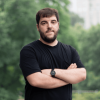 JM
JM
 JM
JM
 DJ
DJ
 DJ
DJ
 DJ
DJ
 YM
YMCurated

 CG
CG
 CG
CG
 CG
CG
 CG
CG
 CG
CG
 CG
CG
 CG
CG
 CG
CG
 CG
CG
 DJ
DJ
 DJ
DJ
 DJ
DJ
 DJ
DJ
 DJ
DJ
 DJ
DJ
 DJ
DJ
 DJ
DJ
 DJ
DJ
 DJ
DJ
 DJ
DJ DJ
DJ
 DJ
DJ
 DJ
DJ
 DJ
DJ
 DJ
DJ
 DJ
DJ
 DJ
DJ
 DJ
DJ
 DJ
DJ
 DJ
DJ
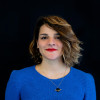 ER
ER
 ER
ER
 ER
ER
 ER
ER
 ER
ER
 ER
ER
 JM
JM
 JM
JM
 JM
JM
 JM
JM
 JM
JM
 JM
JM
 JM
JM
 JM
JM
 JM
JM
 JM
JM
 YM
YM
 YM
YM
 YM
YM
 YM
YM
 YM
YM
 YM
YM
 YM
YM
 YM
YMPerks and Benefits
Read about how various perks and benefits have impacted the lives of our team.
Unlimited PTO
Design work requires high levels of creativity and innovation. The ability to take time off as needed allows designers to recharge and avoid burnout, leading to more innovative and high-quality work.
Cecilia
Professional Development Budget
Access to a dedicated budget for professional development empowers me to invest in courses, workshops, and design resources that enhance my skill.
Jordi
Flexible Working Hours
At Flodesk, we are a fully distributed team, which means working with many different timezones. We always try to have some hours in common to sync, but we also have a lot of flexibility. This has been incredibly important to achieve a healthy work-life balance.
David
100% Remote
The company was built remotely, and we have people across US, Europe, and Asia. It's been great to have flexibility of location, specially when visiting my family in Brazil.
Yuri
Team Offsites
Once a year we have a one-week offsite, where we all meet in person. 2023 we all went to Lisbon, and this year we visited Da Nang, in Vietnam!
Yuri
Unlimited Time Off
It gives me that peace of mind that I'm valued on a project, delivery and objectives' basis as opposed to how many vacation days I take.
Erika
Full Remote Work
It allows me to manage my time the way I want. I have the freedom to fully focus and be productive at my pace as well as go pick up my daughter from school or go for a run on the beach to recharge.
Erika
Medical Insurance
You never know when you may need it and knowing that your company has you covered when it comes to a medical issue is really priceless.
Erika
Frequently Asked Questions
Here are some answers regarding company policies and the nature of work.
How does the company support employee development and growth?
At Flodesk, the development of our team members isn’t just an HR box to check—it’s part of our core values. We are extremely intentional about the talent we hire, and view each team member as an investment. Team members are encouraged to take supplemental courses to hone their skills (or learn new ones), attend creative workshops and conferences, or spend time reading blogs and updates from industry experts. Additionally, we have built a strong culture around constructive feedback and creative coaching. Work is reviewed by both managers and in larger group settings. Team members are expected to leave ego at the door and take feedback as an opportunity for professional development.
What is the company's policy on remote work?
Flodesk has been fully remote since its founding in 2019, with team members spanning the globe in North America, Europe, and Vietnam. Remote work is a core part of our DNA, as we believe the best are everywhere. While we have built a strong muscle around asynchronous communication and the written word, we also place a high value on time in person. Teams frequently participate in in-person offsites for strategic conversations and team building. Additionally, each year we get together as an entire team in an exciting location (including places like Lisbon, Vietnam, and Italy) simply to bond and build rapport with one another.
How does the company promote work-life balance?
Everyone’s definition of a work-life balance is different, and it can be especially tough when you’re spanning multiple time zones for your workday. This is why we promote flexible work schedules, generous PTO, and an asynchronous culture where we ask whether something really needs a meeting before scheduling one. Zoom fatigue is real, so we encourage team members to take frequent breaks, prioritizing time off-screen. As a result, our team is more likely to work in a creative flow state. From this, we see a consistently high output of vibrant, inspired, creative work.
Can you describe the management and leadership style within the company?
When you’re managing a fully remote team of highly motivated and creative people, you have to have a high level of trust and very clear communication around expectations. They say the key to great management is to hire the right people in the first place, and that’s something we take very seriously. We’ve grown our team slowly and intentionally, with a lot of consideration given to each member we’ve brought on. And as mentioned before, we’ve worked to build a strong muscle around clear, direct feedback. We believe that sugar-coating feedback does a great disservice to team members, as it prevents them from real growth.
How does the company measure and evaluate employee performance?
Managers are asked to define clear career ladders for their teams, and clear expectations for what a promotion looks like. To help us track progress and identify areas of opportunity, we have two performance reviews annually. Team members are asked to evaluate themselves openly and honestly, and managers are encouraged to give clear, direct feedback. While these review periods are critical to benchmarking performance over time, open communication, check-ins, and direct dialogue on a weekly 1:1 basis are equally important. The goal is for nothing to come as a surprise in the bi-annual reviews.

